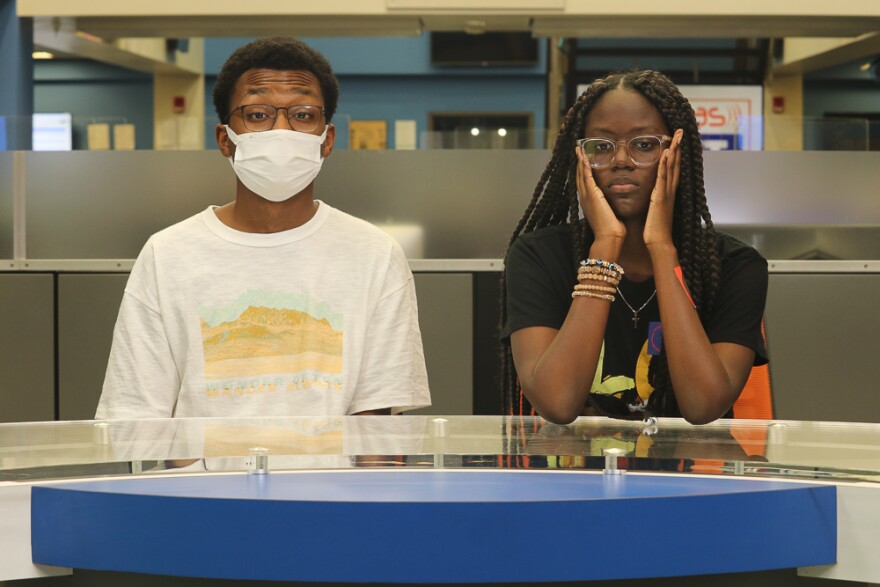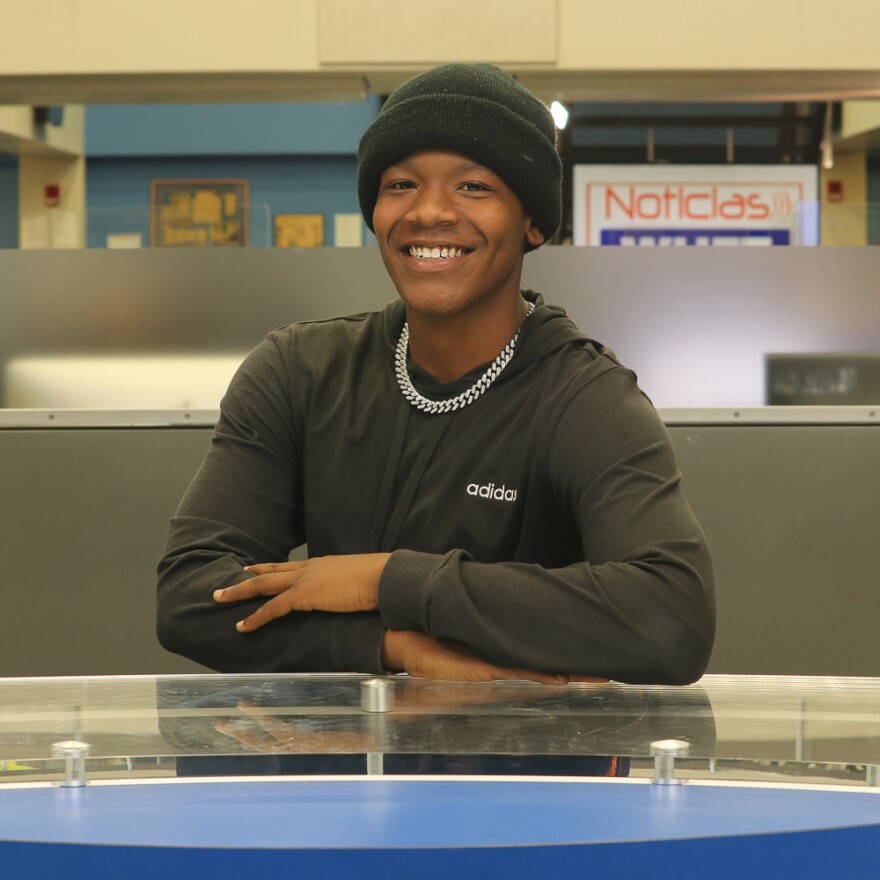This is an abridged version of Episode 5 of our Decolonizing the Curriculum series. The full podcast can be heard above.
Dr. Amanda Concha-Holmes is talking to a room full of students and educators in Gainesville’s Eastside High School library.
"The problem with stereotypes is not that they’re untrue. It’s that they’re incomplete," she says. "They make one story become the only story."
Students in this room have spent the last three months receiving training and instruction as part of their collaboration in the production of this podcast, which was inspired by a series of community workshops that Concha-Holmes led, called "Decolonizing Representations."
"When we talk about African American studies, when we talked about learning about the complexity of Black lives in Florida, we don’t want one story," she says. We want a multiplicity of stories because there’s a multiplicity of people in this room. All of us have very different heritages. All of us have very different stories that brought us here to Florida."
Students in teams of three and four researched a person with an undercovered legacy in Florida and the Gainesville community — ranging from the last known survivor of a racially-motivated massacre to being the first Black student to cross segregated school lines in Alachua County.
They then used audio from interviews by UF's Samuel Proctor Oral History Program to create vignettes showcasing who each person was and the influence they’ve had on their communities.
In this episode, we will be hearing five of those stories.
They range in topic and experience but are all interconnected by similar characteristics: their struggles, their perseverance, their strength. These are the tales of unsung heroes in Florida.
One of Florida’s historically Black communities was established in the 1800s.
The town’s name is Rosewood and it’s located in rural Levy County.
It’s most prominently known for the 1923 massacre that killed at least eight people.
According to the Gainesville Sun, the tragedy is one of the most barbaric injustices Black people in the state have faced in the last 100 years.
Still, its legacy is rarely discussed and was forgotten for nearly 60 years.
Eastside High School student Dominic Humes shares insight into the tragedy by telling us about Mary Hall Daniels — one of the massacre’s last known survivors.
Related coverage:
A gallery of the participants
Eastside High School students in Jemeshia Lyons' African American Studies elective class and 9th grade World History class received training both at Eastside and the University of Florida in reporting and audio editing earlier this year. Working in small teams, students researched a person with undercovered legacies in Florida and the Gainesville community and using interviews from UF's Samuel Proctor Oral History Program created audio vignettes showcasing who each person was and the influence they've had on their communities.
Funding for this program was provided through a Broadcasting Hope Public Media grant from Florida Humanities with funds from the National Endowment for the Humanities. Any views, findings, conclusions or recommendations expressed in this podcast do not necessarily represent those of Florida Humanities or the National Endowment for the Humanities.




























